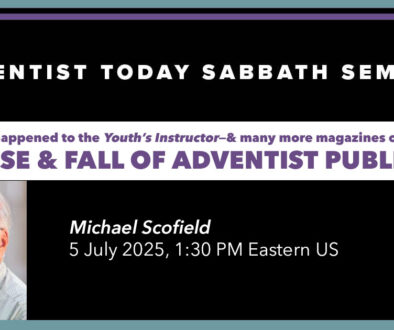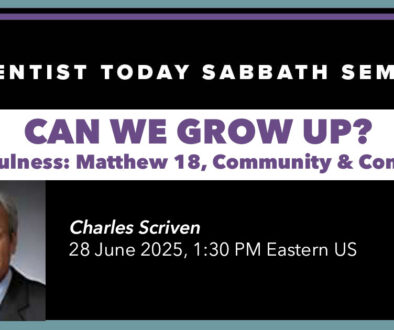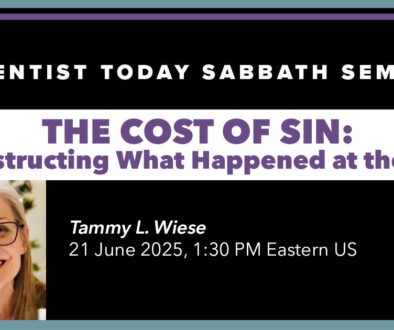Laurence Turner, on “Countering Old Testament Illiteracy”
28 September 2022 |
Brent A. Strawn, in his book The Old Testament Is Dying, draws an analogy between the contemporary Christian church’s competence in reading the Old Testament and the ability to speak a language fluently.
Acknowledging the limitations of any analogy, he argues that the church is losing its ability to understand the Old Testament in much the same way that second- and third-generation immigrants increasingly lose their ability to understand and speak the language of their parents and grandparents. The church, he argues, has lost “fluency” in the Old Testament and it now speaks about it in a “pidgin”.
Pidgins strip down the complexities of language to provide a simplified form of communication between people who do not share a common language. Numerous pidgins have arisen, one of the most extreme being Russenorsk. Now extinct, it was used as a form of communication between Russian and Norwegian traders in the eighteenth and nineteenth centuries. Its grammar was simple in the extreme. For example, it lacked conjugated verbs and had just a single preposition. Its total vocabulary was no more than three hundred words. It allowed the most basic of conversations between traders who did not share a common language, but its utility stopped there. Tolstoy’s War and Peace was never translated into Russenorsk! Strawn argues that the church’s engagement with the Old Testament has reached this level of meagre simplicity. And what is more, most pidgins, like Russenorsk, finally die out. Hence the title of his book.
My experience as a lecturer in Biblical Studies confirms the general truth of Strawn’s thesis. During my career I witnessed accelerating biblical illiteracy, but its pace is faster in the Old than in the New Testament. This should concern Adventists. The first of our fundamental beliefs begins, “The Holy Scriptures, Old and New Testaments, are the written Word of God, given by divine inspiration”. Several doctrines and practices of our church are heavily based on Old Testament passages. However, an increasing number of members find it difficult to “get into” the Old Testament.
In our Adventist Today Sabbath Seminar, we will not attempt a general apology for the Old Testament to show its current relevance. Rather we will try to “get into” the heads and minds of the Old Testament writers. How did their culture, language, and ways of thinking influence what they wrote? And how do the answers to those questions enable us as twenty-first century readers to understand their “language”, and to read what they wrote with increased competence?
Teacher:
Laurence Turner is Principal Lecturer Emeritus in Old Testament at Newbold College of Higher Education.
Moderator:
Raj Attiken is a lecturer at Kettering College, and former president of the Ohio Conference.
How to join:
One-click link: https://us06web.zoom.us/j/87075838841
Passcode: He built the Bible’s biggest boat—a virtual floating zoo! FOUR CHARACTERS, ALL CAPS.
ATSS starting time depends on where you are. If you’re on the west coast of the United States, it’ll be 10:30 AM. On the east coast, 1:30 PM.
Times around the world:
-
- Reykjavík: 5:30 PM
- College Place: 10:30 AM
- Lincoln: 12:30 PM
- Denver: 11:30 AM
- Bracknell: 6:30 PM
- Loma Linda: 10:30 AM
- Nairobi: 8:30 PM
- Gackle: 12:30 PM
- Hosur: 11:00 PM
- Waco: 12:30 PM
- Keene: 12:30 PM
- Kaarina: 8:30 PM
- Stockholm: 7:30 PM
- Möckern: 7:30 PM
- Cape Town: 7:30 PM
- Madrid: 7:30 PM
- Paris: 7:30 PM
- Honolulu: 7:30 AM
- Cooranbong: 3:30 AM (Sunday)
- Perth: 1:30 AM (Sunday)
- Manila: 1:30 AM (Sunday)
- Tokyo: 2:30 AM (Sunday)
- Auckland: 5:30 AM (Sunday)
The class is intended to last about 2 hours, though the conversation often continues to 4 PM (Eastern time).
About our class:
- The AT Sabbath Seminar is intended to be a courteous forum. We discuss and ask questions politely. We don’t accuse, get angry, or put people down.
- Stick to the topic in both comments and chat discussion.
- Make your comments and questions short—don’t dominate.
- Keep your microphones muted unless you are called upon to make your comment or ask your question.
- Indicate your interest in speaking by raising your electronic hand—under the “reactions” button.
- Please use your name when you sign in! Not your phone number, not your initials. This will help us differentiate you from unwelcome guests who want to disrupt us. You can set your name after signing on by clicking on the 3 dots next to your picture, which drops down a menu.
- If it should happen that we are attacked so that we have to stop the meeting, we’ll quickly post a new meeting link on our AT Facebook page.
We look forward to getting acquainted with you!
Coming up:
- Gerald Winslow
- Jon Paulien
- Sigve Tonstad
- Laurence Turner
- Bryan Ness
- Heidi Campbell
- Bill Knott
- Marko Lukic
- Karsten Thomsen
- Andreas Bochmann




